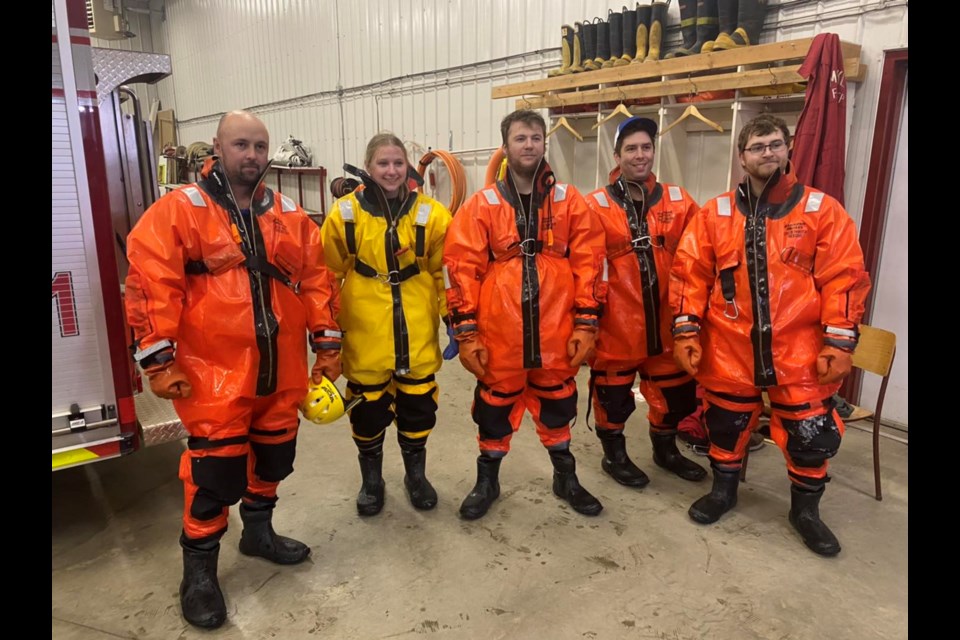MACKLIN — Did you know your community firefighters regularly attend training sessions to help them better prepare for a multitude of emergency scenes they may be responding to? Macklin Fire Department members recently took part in water and ice rescue training at Macklin Lake.
“The year-round use of aeration down at the park means there is open water all winter for our members to don their ice rescue suits and go for a swim,” MFD media spokesperson Pat Stang, says.
“This year we got some rookies involved with some of our veterans.”
Stang says this type of training usually takes place in January and then again later in March and April when the ice gets very brittle and unpredictable.
MFD says they have been called twice for dogs that were chasing birds on the ice, with one person falling in but was able to get out with help from friends.
Stang reminds people to exercise extreme caution around ice and fast flowing water as conditions can change quickly. He advises keeping an eye on young ones playing around ice and near water as they are always tempted by ice crackling or like to see how good their boots are. Trouble can arrive quickly in icy, cold water, he cautions.
Commitment to training is imperative for Macklin firefighters and they usually do their training sessions the second meeting of every month, which can vary from two to five hours at those meetings. This is in addition to whatever extra courses come up like first aid, vehicle extrication, ice water rescue and live burn practices.
Stang also affirms that their department have started the process of upgrading the Self Contained Breathing Appartus (SCBA) they are using. “Some of the old packs we are using are over 35 years old and were donated to us after they were used for oil field work.”
Upgrades means seeing the advancements that have happened over the years in the new tools. The new packs are easier to maintain and are lighter to wear. The amount of working time members have with the newer bottles doubles from 20 to 40 minutes.
“The cost of this project is going to be around $85,000 and we will be phasing in the new packs over the next few years. We already have had some generous donations that will help with the costs, but more donations are always welcome.”




